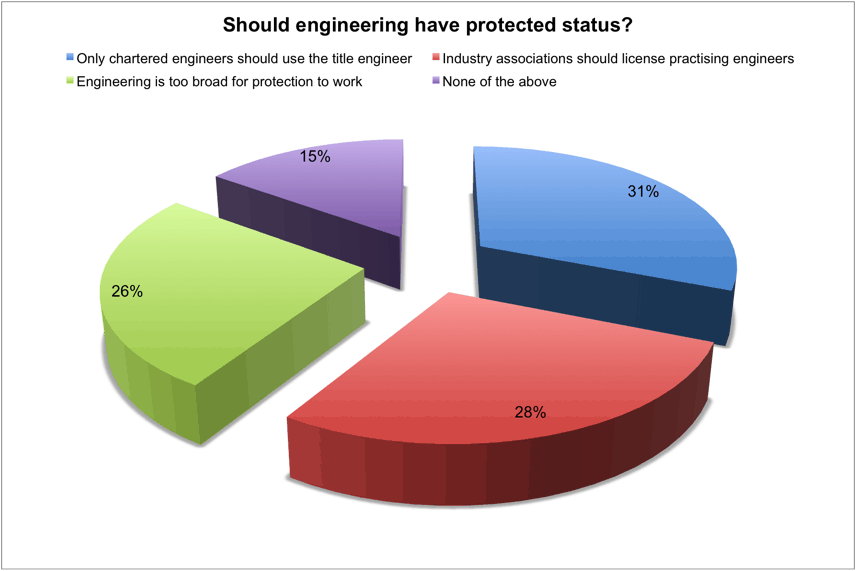
Certain professions have protected titles so why should engineering be any different? This is the question we put in last week’s poll and the results from over 700 votes indicate a bias to protecting the title of engineer.
In total, 31 per cent of respondents thought that only chartered engineer should use the title engineer; and 28 per cent agreed that industry associations should license practicing engineers .
Of the remaining 41 per cent, 26 per cent thought that engineering is too broad for protection to work, whilst 15 per cent couldn’t find a fit with the options presented to them.
Unsurprisingly, the poll led to a vigorous debate on whether engineering should have protected status, with one commentator writing to say: ‘The person with a spanner who fixes the washing machine has a title – technician, why are they calling themselves engineer? Does that mean because I took an applied science degree that I am a neurosurgeon by default? Hardly. Why would any young person good at STEM subjects aspire to fix washing machines?’
This comment is one of 72 generated so far by the poll, but what do you think? Let us know below.





Poll: Should the UK’s railways be renationalised?
I'm in favour because of the ownwership of the so called "private" rail companies. Many have significant foreign state ownership. RATP (French state...